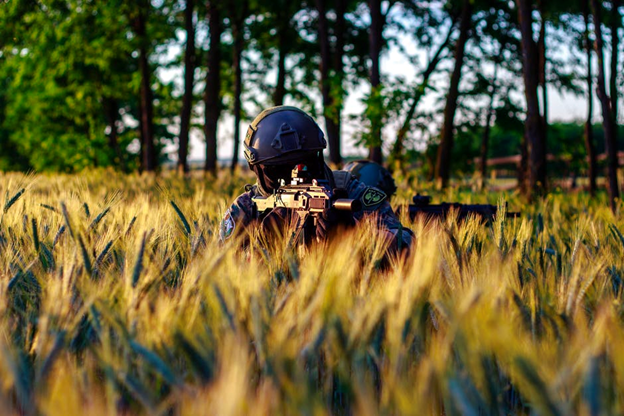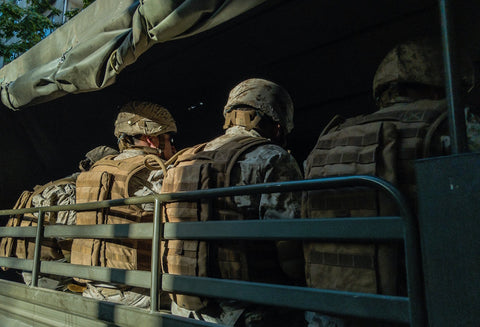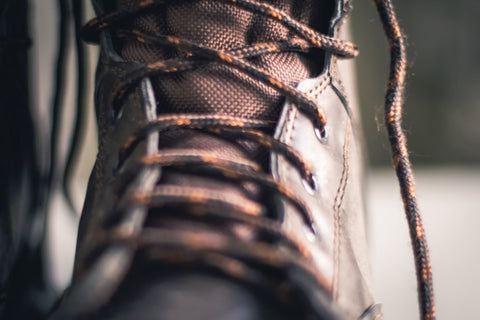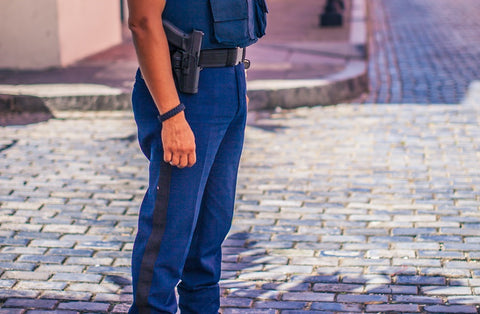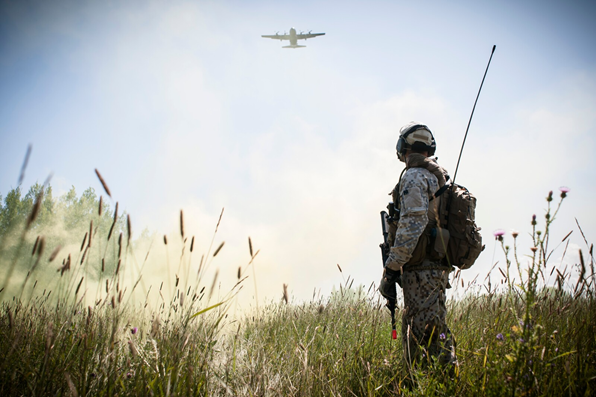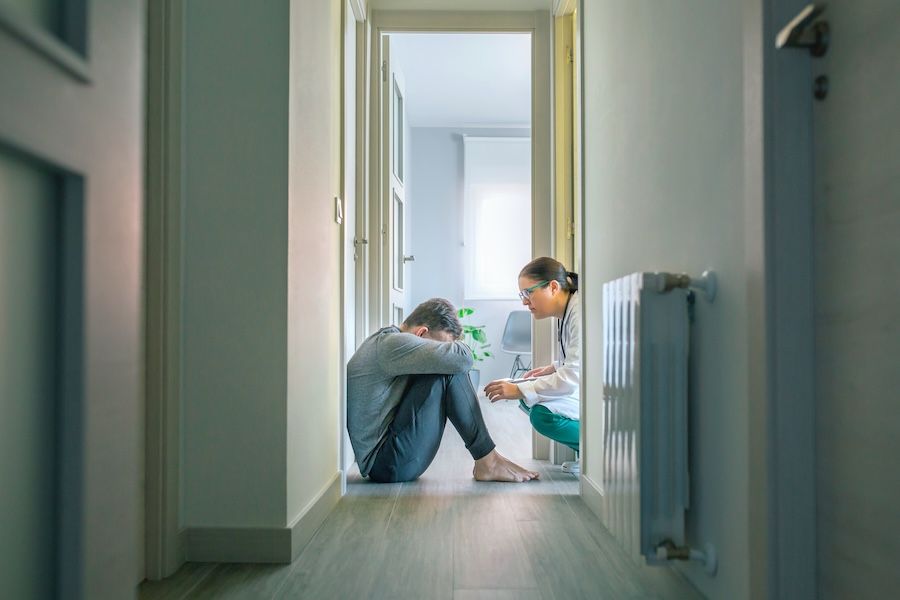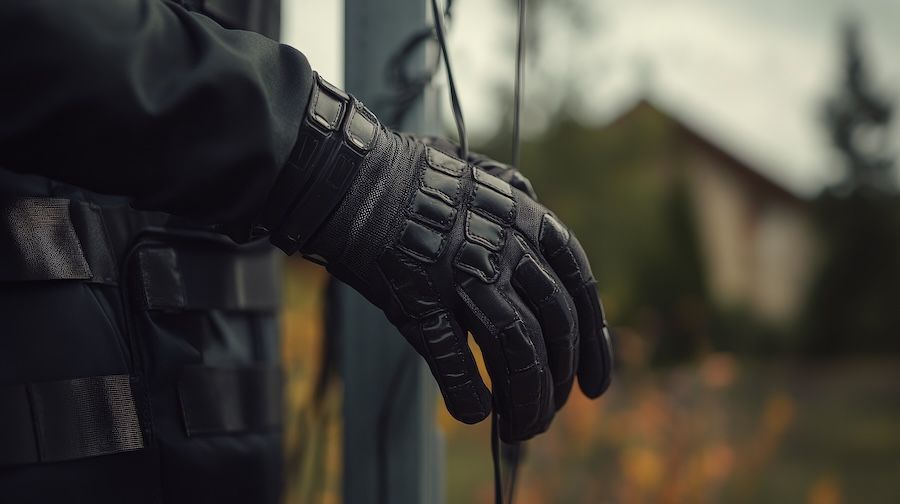Personal Defense Tools for Hospital Security Staff
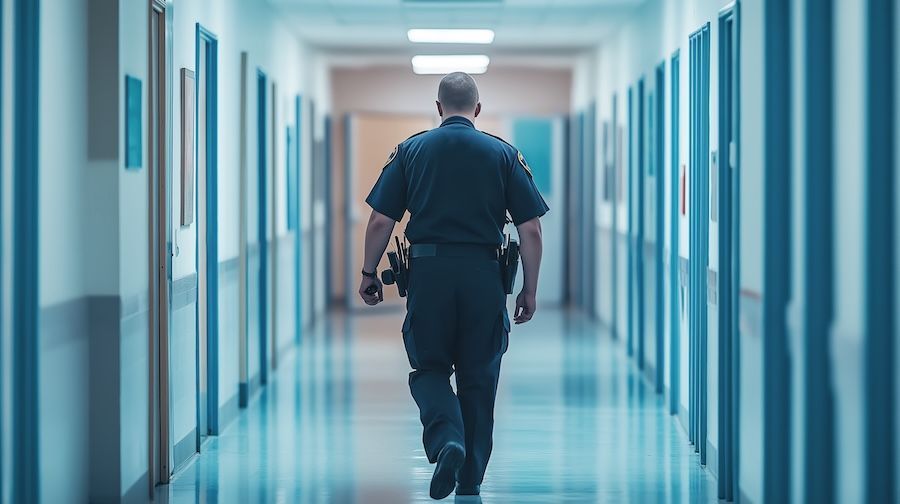
Hospital security staff face challenges completely differentt from those encountered in other industries. The healthcare environment is unpredictable, with staff constantly interacting with patients, visitors, and sometimes even family members, many of whom may be experiencing heightened emotional or mental stress.
These situations can quickly escalate, creating a need for security personnel to respond swiftly and effectively. You might find yourself in situations where physical confrontation, verbal abuse, or even threats are a reality. The unpredictability of hospital settings, combined with the sheer volume of people, can create an environment where being prepared for anything is essential.
Your primary job as a hospital security officer is not just to protect the premises but also to ensure the safety and well-being of both staff and patients.
It’s a delicate balance - maintaining a sense of calm while still asserting authority when needed. That’s why it’s so crucial to have the right tools to handle a variety of situations. Personal defence tools help give you the confidence to approach your duties, whether it’s diffusing a tense encounter or managing a more serious security threat.
The proper gear ensures that you're not only ready to protect yourself but also able to maintain order in high-pressure environments without compromising the safety of others.
Tactical Communication Devices for Incident Management
Communication is always the key, but it’s especially important ih rapidly evolving situations. When every second counts, it’s crucial to have tools to rely on and stay connected with other security staff, medical teams, and even local law enforcement if necessary.
Radios and earpieces are among the most commonly used tools in this regard. These devices help maintain seamless communication, allowing you to instantly share critical information with the team.
Whether you're responding to an emergency or coordinating efforts to de-escalate a situation, having a secure, hands-free communication system is essential.
Radios, in particular, have many features that enhance their effectiveness for hospital security. Secure channels ensure that your communications are private and protected from external interference. This is crucial in a hospital, where patient confidentiality is a priority.
Many radios also come with emergency alert functions, allowing you to signal for help or notify others of a situation without alerting the individual you’re interacting with. GPS tracking is another invaluable feature, as it enables supervisors to track your location within the hospital in case of an emergency. This can be especially helpful if you're in a large facility or dealing with a potentially volatile situation.
Clear communication can also be a crucial factor in de-escalating potentially violent encounters. By maintaining calm and clear exchanges, you help diffuse tensions and guide others to safety. In some cases, the mere act of communicating the presence of security personnel may deter aggressive behaviour. The ability to stay connected, whether through radios or smartphones with emergency apps, ensures that you’re not alone when responding to an incident.
Protective Clothing and Gear for Mobility and Safety
When you’re working in a fast-paced environment such as a hospital, comfort and mobility are just as important as protection.
Security staff need to be able to respond quickly, whether it’s to prevent a potential threat or assist with an emergency. That’s why having the right protective clothing and gear is essential.
Lightweight body armour, for example, offers protection without restricting movement. It’s designed to shield you from physical harm, whether it’s a punch or a more serious attack, but it doesn’t weigh you down or limit your ability to move quickly.
Cut-resistant gloves are another important piece of protective gear. As a security officer, you may have to physically restrain someone or break up a fight. Cut-resistant gloves provide an extra layer of safety, protecting your hands from sharp objects like broken glass or knives. These gloves are designed for both comfort and protection, ensuring you can perform your duties while minimizing the risk of injury.
Footwear plays a similarly important role in maintaining both mobility and safety. A good pair of durable, slip-resistant shoes is essential for preventing injuries while walking on potentially slick hospital floors. They also provide the necessary support for long hours on your feet. Durability and comfort should be your top priorities when selecting footwear, as you’ll likely be walking, running, and possibly even chasing someone through the halls.
While you need to be prepared for any situation, there’s also the question of professionalism. Your uniform and gear should make you look authoritative but not intimidating.
In a hospital setting, you’re there to help and maintain order, not to escalate the situation. Finding the right balance between readiness and professionalism is key. The right gear allows you to handle any security situation efficiently while still maintaining the approachable and professional demeanor that a hospital environment demands.
Non-Lethal Self-Defence Tools for De-Escalation
Hospital security staff often find themselves in situations where a physical confrontation could easily escalate into something more dangerous. However, having the right non-lethal tools can make all the difference in managing threats without resorting to excessive force.
Tactical batons, personal alarms, and stun guns can be invaluable for de-escalation. These devices are designed to provide an effective response to dangerous situations while allowing you to maintain control without causing permanent harm.
Tactical batons are a common and effective tool used by security personnel. They are compact and lightweight, yet strong enough to be used in self-defence. A baton can help you create distance between yourself and an aggressor, giving you more time to assess the situation and call for backup if needed.
When used properly, a baton can immobilize a person long enough for other security staff to assist or for law enforcement to arrive on the scene. It is important to note that proper training is essential in using a baton safely and effectively, as misuse can quickly turn a situation from defensive to overly aggressive.
On the other hand, personal alarms serve as a great way to alert others when you are in danger or need assistance. These small, easy-to-carry devices emit a loud, high-pitched sound when activated, drawing attention to your situation. This can help deter attackers, as the noise often signals the presence of security or other staff members. Personal alarms also provide an easy way to signal for help, especially in environments where others may not immediately notice an escalating situation.
Stun guns are another non-lethal self-defence tool that can quickly disable an attacker. When used properly, they send a high-voltage electric charge that disrupts the attacker’s muscle function, incapacitating them temporarily.
This allows you to secure the area or restrain the individual until backup arrives. As with any self-defence tool, it is critical to undergo proper training to ensure you use it correctly and safely. Knowing when and how to use a stun gun can prevent an escalation of violence and protect both you and the individuals around you.
Surveillance and Monitoring Tools for Proactive Security
Being able to respond quickly to incidents is important, but it’s equally crucial to stay ahead of potential threats before they escalate.
Surveillance and monitoring tools play a significant role in this proactive approach to security. Tools like portable cameras, body cams, and other monitoring devices help you keep an eye on what’s happening within the hospital, allowing you to detect suspicious activities early and respond appropriately. These tools also allow for real-time surveillance, helping you assess the situation and coordinate with other security officers more effectively.
Portable cameras are useful for capturing real-time footage of any incidents or suspicious activity. These cameras can be placed strategically throughout the hospital or carried by security officers during patrols. This allows you to monitor areas that might otherwise be difficult to observe and act as an early warning system for any potential risks. Having this footage can also be invaluable iwhen there is a need to review or document an incident.
Whether it’s a verbal altercation or a physical confrontation, video footage provides an objective account of what happened, which can be important for investigations or legal purposes.
Body cams are becoming increasingly common in hospitals as a tool for both security staff and law enforcement. They offer a hands-free way to document incidents from the perspective of the security officer, ensuring that every detail is captured. These devices are especially useful in high-pressure situations, where remembering every detail can be difficult. Body cams also deter potential aggressors, as they know their actions are being recorded.
Knowing that you are being recorded can often lead to a reduction in aggressive behaviour, allowing you to focus on de-escalating the situation.
Real-time monitoring devices are another crucial tool for maintaining security within a hospital.
These devices can be integrated with security cameras, allowing monitoring staff to observe areas of the hospital remotely. The advantage of real-time monitoring is that it provides a continuous watch over areas that security officers may not be able to patrol at all times. This can include high-traffic areas, hallways, or entrances where threats could emerge. In the event of an incident, monitoring devices allow security to respond immediately, dispatching staff or contacting emergency services if necessary.
While these tools are effective for maintaining safety, there are also privacy considerations to keep in mind. Hospital security staff must ensure that surveillance equipment is used ethically, respecting patient privacy and confidentiality.
Following privacy laws and regulations is essential for balancing between security and patient rights. With the right policies in place, surveillance can be a powerful tool for ensuring safety while maintaining trust with the hospital community.
Lighting Solutions for Emergency and Low-Visibility Scenarios
One of the most overlooked aspects of hospital security is the role that lighting plays in both navigation and defence. Tactical flashlights, headlamps, and other portable lighting devices are essential parts of your security gear, helping you navigate dark areas, identify threats, and signal for help.
Tactical flashlights are not just about providing light; they’re designed for durability and versatility.
These flashlights are built to withstand impact and extreme conditions, ensuring they perform when you need them the most. Many tactical flashlights also feature adjustable brightness settings, allowing you to tailor the light to your needs. When you need to temporarily blind or disorient a potential attacker, a flashlight with a strobe setting can be incredibly useful. The sudden, intense light can confuse or momentarily incapacitate an aggressor, buying you valuable time to either escape or call for backup.
Headlamps are another great lighting solution, especially if you need both hands free to manage a situation. These head-mounted lights allow you to shine light in any direction without having to hold a flashlight. This is especially useful when you’re carrying out patrols or dealing with situations where you need to interact with others, such as helping patients or restraining a person.
Having both hands available ensures that you can maintain control and stay safe while still providing enough light to assess your surroundings.
Rechargeable batteries are another important feature to look for in lighting tools. When you're working long shifts or handling multiple incidents, it’s important to have reliable, long-lasting power. Many modern tactical flashlights and headlamps offer rechargeable batteries, meaning you don't have to worry about constantly replacing batteries.
This not only makes them more environmentally friendly but also ensures that you’ll always have the lighting you need without interruption.
First Aid and Medical Kits: Preparedness Beyond Defence
While personal defence tools are essential for protecting yourself and others in high-stress situations, it's equally important to be prepared for medical emergencies that may arise during incidents. A well-equipped first aid kit can be the difference between a minor injury and a serious, life-threatening situation.
Hospital security staff should carry first aid kits that are tailored specifically for their needs, ensuring they can address a wide range of potential injuries.
Trauma packs are among the most crucial items in your first aid kit. These packs are designed to handle more severe injuries, such as heavy bleeding or trauma from physical altercations. Trauma kits typically include items like hemostatic dressings to control bleeding, tourniquets for limb injuries, and advanced bandages for serious wounds.
Having these tools readily available allows you to stabilize an injured individual until professional medical help arrives. Being able to respond quickly with the right equipment can save lives and minimize further harm in the crucial moments following an injury.
Tourniquets, in particular, are essential in situations with significant blood loss. They can stop or slow bleeding in a limb, buying you the precious time needed to get the individual to the hospital's emergency department for further treatment. While using a tourniquet may seem intimidating, it's a simple yet effective tool that can help prevent the worst outcomes in traumatic situations.
Training on how to use these items, especially tourniquets, is a key component of any security officer's preparation.
Beyond trauma care, your first aid kit should also include items to handle everyday injuries. Adhesive bandages, antiseptic wipes, burn cream, and ice packs can address minor injuries that are still important to manage promptly. These basic supplies help ensure that any injuries, no matter how small, are treated quickly, preventing infections and allowing staff to remain focused on their primary responsibilities.
Basic first aid training is as vital as the tools themselves. Knowing how to apply bandages properly, how to handle a concussion, or how to perform CPR can make a significant difference in outcomes. Hospitals often provide training in first aid for their security staff, but it’s important to regularly update your skills and stay current with best practices.
Training and Maintenance: The Foundation of Effective Defence
Having the right tools is only half the battle in hospital security. The other half is knowing how to use them when it counts. Regular training ensures you're confident with your gear, whether it’s a tactical baton, stun gun, or responding to an emergency. Solid training programs help you stay calm and act quickly when things go sideways.
Situational awareness is crucial. Hospitals present unique security challenges, and being able to spot signs of trouble before things escalate can make a huge difference. Training should focus on situations you’re most likely to face, like dealing with aggressive patients or visitors. Practicing these scenarios helps you react naturally, so you’re prepared when it’s go time.
Physical and mental fitness are also vital. Security staff need to stay sharp, which means moving quickly and thinking clearly, especially under pressure. Regular fitness and mental prep keep you on top of your game, helping you stay focused when the pressure’s on.
Maintenance goes hand in hand with training. Whether it’s your flashlight, body armour, or first aid kit, checking your gear before every shift ensures it's ready when you need it most. A simple check for wear and tear can prevent costly mistakes during an incident. Keeping track of any repairs or replacements ensures your tools are in tip-top shape, giving you peace of mind and confidence in your ability to handle whatever comes your way.


